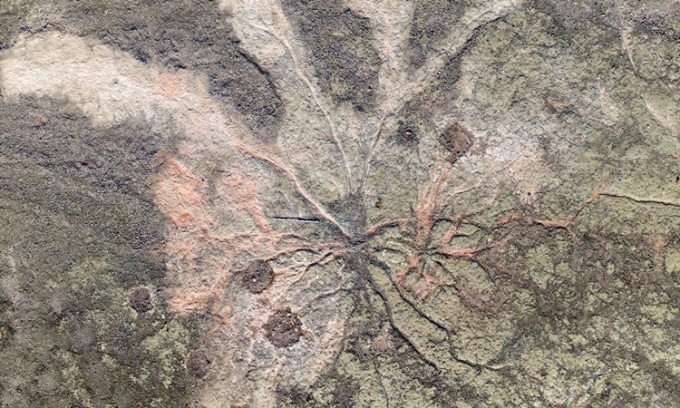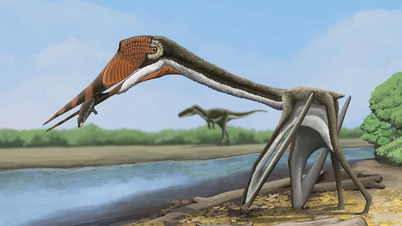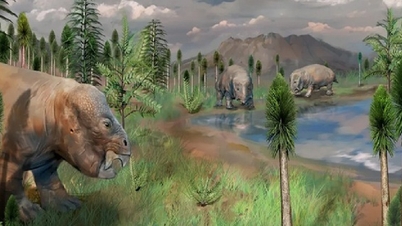The roots of 385 million-year-old trees suck CO2 from the air, dramatically changing the Earth's atmosphere.

Archaeopteris root system seen from above. Photo: Christopher Berry
The world’s oldest forest is located in an abandoned quarry near Cairo, New York. The 385-million-year-old rocks contain the fossilized roots of dozens of ancient trees. As the trees grew these roots, they helped suck carbon dioxide (CO2) from the air and store it, dramatically changing the Earth’s climate, leading to the atmosphere as we know it today, according to IFL Science .
Christopher Berry, a paleobotanist at Cardiff University in the UK, and colleagues discovered the site in 2009. Some of the fossilized roots there were 15 centimeters in diameter and formed a circular pattern that extended 11 meters from the trunk. They appeared to belong to the genus Archaeopteris , a tree with large woody roots and many branches that is related to modern trees, according to the study published in the journal Current Biology. Previously, the oldest Archaeopteris fossils were no more than 365 million years old. The Cairo site suggests that Archaeopteris evolved modern features as early as 20 million years ago.
Trees like those in Cairo had a major impact on ancient climates, says Kevin Boyce, a geoscientist at Stanford University in Palo Alto, California. Their roots dig deep into the ground, breaking up the rocks below. Geologists call this process “weathering.” It drives chemical reactions that pull CO2 from the air and convert it into carbonate ions in groundwater. Eventually, the groundwater flows out to sea and is trapped in limestone.
Partly due to weathering and its ripple effects, atmospheric CO2 levels dropped to their present levels not long after the appearance of the forests. Tens of millions of years earlier, CO2 levels were 10 to 15 times higher than they are today. Some studies suggest that the dramatic drop in atmospheric CO2 led to a steady increase in oxygen levels, leading to an atmosphere that contained about 35 percent oxygen 300 million years ago. This spurred the evolution of giant insects of the time, some with wingspans of 70 centimeters, that lived in the ancient forests.
This is not the first time researchers have discovered a primeval forest. The previous record holder was a fossil forest in Gilboa, New York, about 40 km from Cairo, containing tree specimens that were 382 million years old.
An Khang (According to IFL Science/Science )
Source link



![[Photo] Prime Minister Pham Minh Chinh receives Swedish Minister of International Development Cooperation and Foreign Trade](https://vphoto.vietnam.vn/thumb/1200x675/vietnam/resource/IMAGE/2025/5/12/ae50d0bb57584fd1bbe1cd77d9ad6d97)


![[Photo] Prime Minister Pham Minh Chinh works with the Standing Committee of Thai Binh Provincial Party Committee](https://vphoto.vietnam.vn/thumb/1200x675/vietnam/resource/IMAGE/2025/5/12/f514ab990c544e05a446f77bba59c7d1)
![[Photo] Prime Minister Pham Minh Chinh starts construction of vital highway through Thai Binh and Nam Dinh](https://vphoto.vietnam.vn/thumb/1200x675/vietnam/resource/IMAGE/2025/5/12/52d98584ccea4c8dbf7c7f7484433af5)





























































































Comment (0)